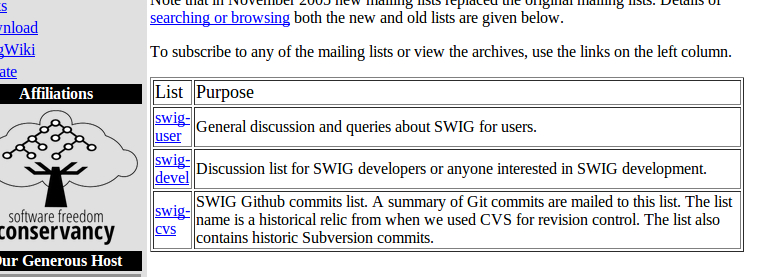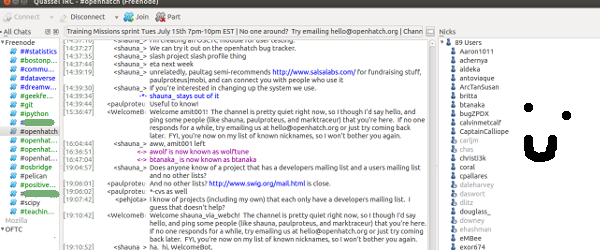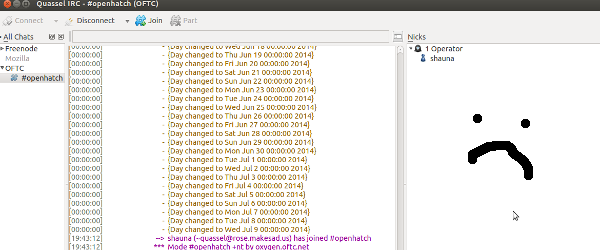Open Source Communications Tools
3 Most Common Tools
Mailing Lists
IRC
Issue Trackers
Mailing Lists
Subscribing to mailing lists is a good way to learn about a project's culture and the type of problems they're working on. You don't have to post right away -- you can lurk for a while.
Some projects have a lot of mailing lists...
Some projects don't have any mailing lists.
One common division is to have one lists for users and another for developers.

IRC
Top-left: Colloquy. Top-right: X-chat.
Bottom-left: Hexchat. Bottom-right: webchat.
(Haven't installed a client yet? Go here.)
IRC is decentralized, which means no one organization or company controls it. Instead, individuals host networks. Make sure your channel AND network are correct!


You can join a channel from the command line!
/join #openhatch
You can make your own new channels this way, by joining a channel that doesn't already exist.
Try joining #openhatch on Freenode this way.
If you use someone's nickname, most clients highlight that so it's easy for them to see. It's considered good form to include the nicks of people you are addressing, although you don't need to do this for every single line.

You can start a private conversation with someone using this command:
/query nick messsage
It is considered good form to ask in the public channel whether you can send a private message to someone.
You can do actions.


You can register your nickname!
/msg NickServ REGISTER password youremail@example.com
Then, when you return to the network after being away, you can identify yourself with your registered name and password:
/msg NickServ IDENTIFY account password
If you want to be persistently logged in to IRC, you can:
use the Quassel server component
(we can help you!)
If you want to log into IRC quickly and don't have a client set up, try webchat:
Want to learn more? Try #irchelp!
Issue Trackers
Issue trackers are kind of like a group "to do" list.
Example trackers:
Explore the trackers and list what they have in common. Don't forget to click through to individual issues!
Common fields you may have found:
- Unique ID
- Reporter/Creator of Issue
- Assigned
- Date Created & Date Updated
- Status
- Summary
Which should you pay special attention to?
- Status
- Bad: "Closed", "Resolved" or "Upstream" -- the issue has been addressed, or the maintainers don't want to address it now or ever.
- Mediocre: "New" -- the maintainers have not had a chance to see if they want the issue addressed.
- Good: "Open" or "Accepted" or "In Progress" -- the issue has been confirmed and the community wants it addressed.
Which should you pay special attention to?
- Assigned: If it's assigned to someone else, especially if they haven't updated recently, leave a comment saying you'd like to work on it.
- Date Updated: If the issue hasn't been updated in a while (more than 6-12 months) you can leave a comment asking if the issue still needs to be addressed.